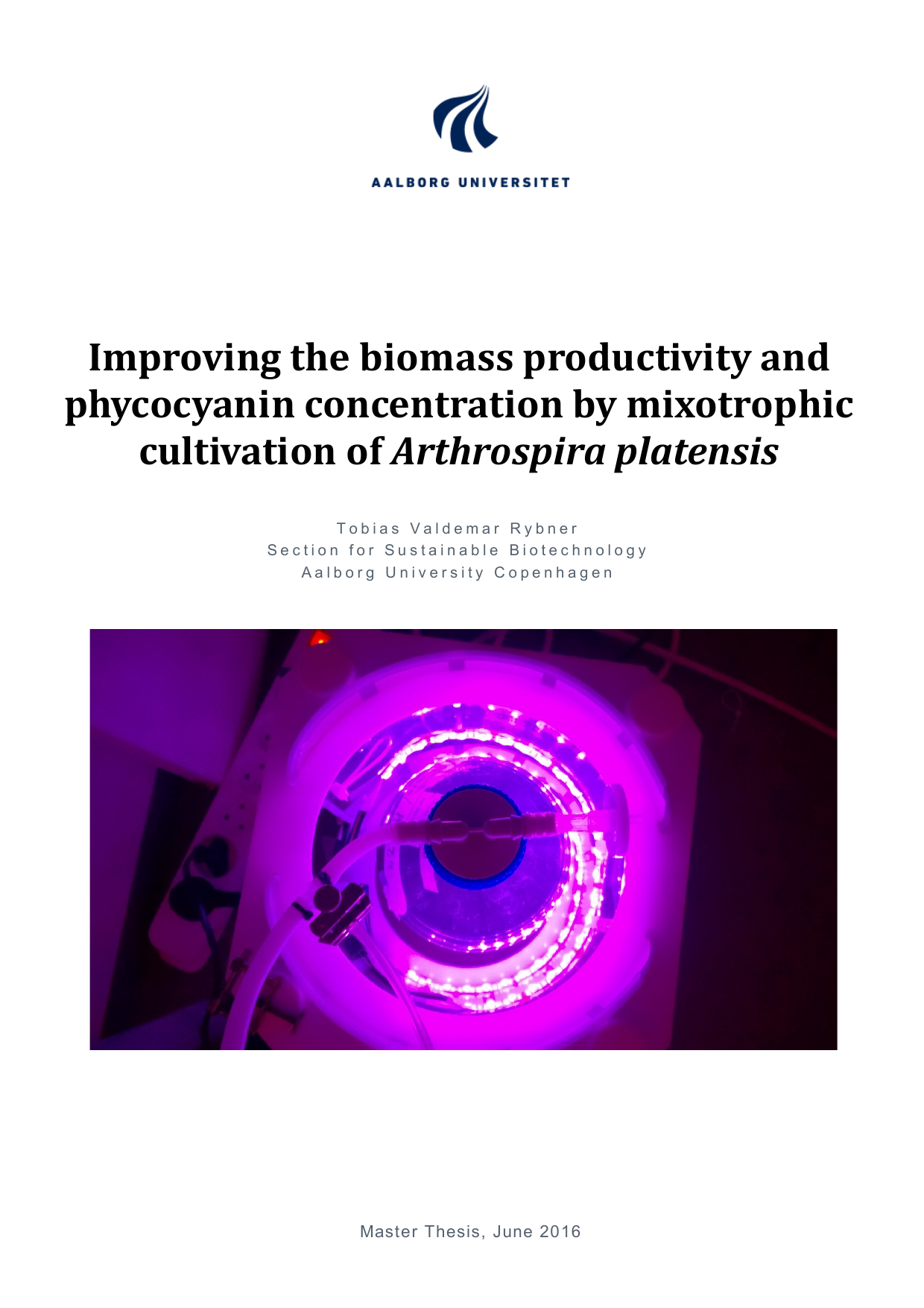
Improving the biomass productivity and phycocyanin concentration by mixotrophic cultivation of Arthrospira platensis
Translated title
Author
Term
4. term
Education
Publication year
2016
Submitted on
2016-06-10
Pages
57
Abstract
Arthrospira Platensis is a phototrophic organism that naturally contains the pigment phycocyanin. A. platensis is cultivated in industrial autotrophic open raceway ponds that have several drawbacks including risk of contamination and low productivity. Many of the disadvantages associated with open ponds cultivation systems can be improved by cultivation in closed photobioreactors. Cultivation in closed systems is still an expensive method mainly associated to a high-energy consumption. Therefore, in order to make it more profitable to cultivate in closed systems, it is necessary to reduce the energy consumption. This can be accomplished by using LED light sources for cultivation and by improving the productivity of A. platensis to reduce cultivation time. In this study the effect on productivity of A. platensis cultivated mixotrophic with acetate as organic carbon source under different light conditions was investigated. The average biomass productivity was increased with around 20% for the mixotrophic cultures but the phycocyanin content per gram biomass was the same for both the autotrophic and mixotrophic cultures. Lower light intensities seem to improve the phycocyanin content. However, cultivating with only red light did not seem to effect phycocyanin content. It also seems like there is a correlation between high biomass density and low phycocyanin content. The biomass productivity was increased when A. platensis was cultivated with acetate and phycocyanin content was increased with low light intensities, suggesting that acetate could be used as a substrate for cultivation of A. platensis at low light intensities in order to improve production of phycocyanin and reduce energy consumption.
Keywords
Documents
